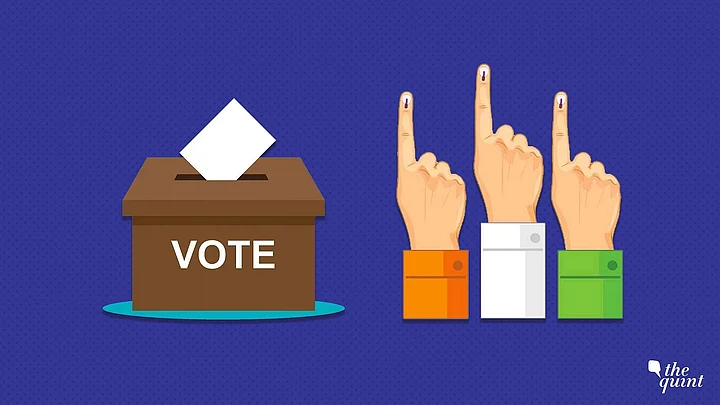‘Revadi’, or ‘Rabdi’, a popular sweet dish in India, is making headlines and has become a bone of contention between the ruling Bharatiya Janata Party (BJP) and the Opposition.
It started with Prime Minister Narendra Modi stating that ‘Revadi’ culture, or ‘freebies’, is dangerous for the country and could lead to far-reaching economic consequences.
This was seen as a direct dig at Arvind Kejriwal’s Aam Aadmi Party (AAP), which has made some alleged ‘freebies’ its main election plank.
With the Congress on a decline, many political observers see the AAP as a potential threat to the BJP in the near future. It is the only regional party to have governments in two states.
A perturbed Kejriwal hit back at Modi, saying that the free education, healthcare and electricity provided by the Delhi government are not freebies but efforts to make India the ‘number one’ country in the world.
Indian voters are smart, let’s not question their wisdom by making linkages between freebies and voter behaviour.
Today, because of increased competition in politics, most political parties announce freebies. Hence, their net impact may be nil.
If freebies were an electoral issue, then Congress would have won over 200 seats in Uttar Pradesh, where it promised the moon (scooters, cash doles to women, pension, etc).
In Tamil Nadu, where the 'freebie culture' is deep, the government changes every five years. That is perhaps an indication that freebies have little impact.
Resources for freebies are raised from the public itself through higher taxes or other means. It’s like putting money in your left pocket by taking it out from your right pocket.
The debate should aim at increasing the accountability of political parties. In manifestos, when parties promise such freebies, they should mandatorily come up with how they plan to finance them.
Don't Undermine Indian Voters
The BJP’s Delhi state unit leader and Supreme Court lawyer, Ashwini Upadhyaya, filed a plea in the court, seeking a direction to the Election Commission to deregister a political party that promises or distributes irrational freebies before elections.
The Supreme Court has directed the Centre to form a panel comprising the Finance and Law Commission, the Niti Ayog, the Reserve Bank of India, political parties and the Election Commission to brainstorm on the issue and come up with constructive recommendations, as Parliament may not be able to effectively resolve the issue. However, though the Election Commission has welcomed the court’s decision to set up an expert panel, it has refused to be a part of it.
While a lot of hue and cry has been made about the freebie culture and its impact on voters, there is no direct correlation between freebie promises and electoral results.
So, the basic assumption here of the plea and the court direction, that freebies sway voters, may not be entirely correct. Indian voters are smart, let’s not question their wisdom by making linkages between freebies and voter behaviour.
Today, because of increased competition in politics, most political parties announce freebies. Hence, their net impact may be nil. It is wrong to assume that AAP won Delhi and Punjab because of the ‘freebies’ it announced.
If freebies were an electoral issue, then Congress would have won over 200 seats in Uttar Pradesh, where it promised the moon (scooters, cash doles to women, pension, etc).
What, Really, Is a 'Freebie'?
The freebie trend started in Tamil Nadu, where key parties offer everything from television sets and washing machines to grinder-mixers to voters. Also, in Tamil Nadu, the government changes every five years, which is perhaps an indication that freebies have little impact.
We also need to define what a ‘freebie’ is. By definition, freebie is something that is given or provided free of charge. So, free power, healthcare, and education can, technically, be counted as a freebie. This would also include schemes like Mohalla clinics, and even Ayushman Bharat. Is PM Kisan Nidhi or cylinders provided under the Ujjwala Yojana also freebies? Technically, yes. And by that definition, MGNREGA payments are not a ‘freebie’ as people get paid for working on projects.
However, India is a welfare state. We need to tax the rich and pay for the poor. The poorer sections need support for their upliftment. So, how can a state help the people at the bottom of the pyramid without freebies or subsides?
One of the criticisms of the freebie culture is that it could damage the financial health of states. But again, freebies do not form a big amount in relation to the budget of a state. Where states' finances are really getting hit is in their ability to raise revenues in the GST era. Additionally, mismanagement of funds, corruption and leakages have contributed to the poor state of finances.
Freebies Do Not Come for 'Free'
I do agree that freebies should not be free for all sections of society. Economic criteria should be used for freebies and those who are capable enough to pay for their health, power and educational bills should not be offered freebies.
There are no free lunches in the world. Resources for freebies are raised from the public itself through higher taxes or other means. It’s like putting money in your left pocket by taking it out from your right pocket.
The debate, however, should aim at increasing the accountability of political parties. In manifestos, when parties promise such freebies, they should mandatorily explain how they plan to finance them. Details such as the likely impact on the budget in the next five years, credit ratings, etc, could help people make informed choices and increase transparency.
(The author is an independent political commentator and can be reached at @politicalbaaba. This is an opinion piece. The views expressed above are the author’s own. The Quint neither endorses nor is responsible for them.)
